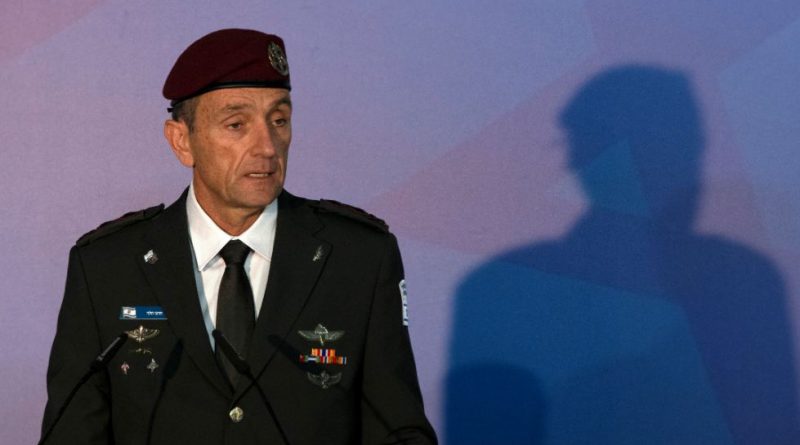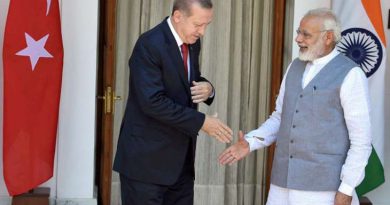Top Israeli general says ‘action’ is on horizon over Iran nuclear work
Jerusalem (Reuters) – The top Israeli general raised the prospect of “action” against Iran on Tuesday even as Prime Minister Benjamin Netanyahu’s national security adviser played down any immediate threat posed by a new underground nuclear facility being dug by Tehran.
World powers’ efforts to negotiate new curbs to Iranian uranium enrichment and other projects with bomb-making potential have been fruitless so far, fanning long-bruited threats by Israel to resort to force if it deems diplomacy a dead end.
“Iran has advanced with uranium enrichment further than ever before … There are negative developments on the horizon that could bring about (military) action,” Lieutenant-General Herzi Halevi, chief of Israel’s armed forces, said in a speech.
He did not detail what those developments might be, nor what action might be taken and by whom.
“We have capabilities, and others also have capabilities,” Halevi told the Herzliya Conference, an international security forum, in an apparent allusion to Israel’s U.S. ally.
Experts are divided over whether the Israeli military has the clout to deal lasting damage to Iranian nuclear facilities that are distant, dispersed and defended. Iran denies seeking the bomb and has vowed devastating reprisals for any attack.
There has been speculation Israel might use countries on Iran’s borders as springboards for strikes. One such country, Azerbaijan, dismissed that idea despite its strong Israel ties.
“We refrain from interfering in the disputes or problems (of other countries), including by allowing or giving our territory for some operations or adventures,” Deputy Azeri Foreign Minister Fariz Rzayev said at the conference.
The Associated Press on Monday reported Iran was building a new underground site in the Zagros Mountains to replace an exposed uranium centrifuge manufacturing center at nearby Natanz that was struck by an explosion and fire in July 2020.
“This of course limits the capacity to carry out an attack, relative to above-ground facilities, which is of course easier. But what can be said about this matter is that there is nowhere that cannot be reached,” Israeli National Security Adviser Tzachi Hanegbi told the conference.
Following the 2020 incident, Iran announced in 2021 that it was working to move some of its centrifuge manufacturing halls into the “heart of the mountain near Natanz”, an area where Iranian engineers have long carried out excavation work.
Hanegbi declined to threaten an explicit Israeli attack and even suggested the onus would be on the United States by noting that it has massive GBU-43/B bombs which are not in Israel’s arsenal.
In any event, Hanegbi added, “this (underground facility near Natanz) is years away from being completed”.
Though Washington prefers to pursue diplomacy with Iran, the allies see “eye to eye” and have no significant difference on potential “red lines” for last-resort military action, he said.



